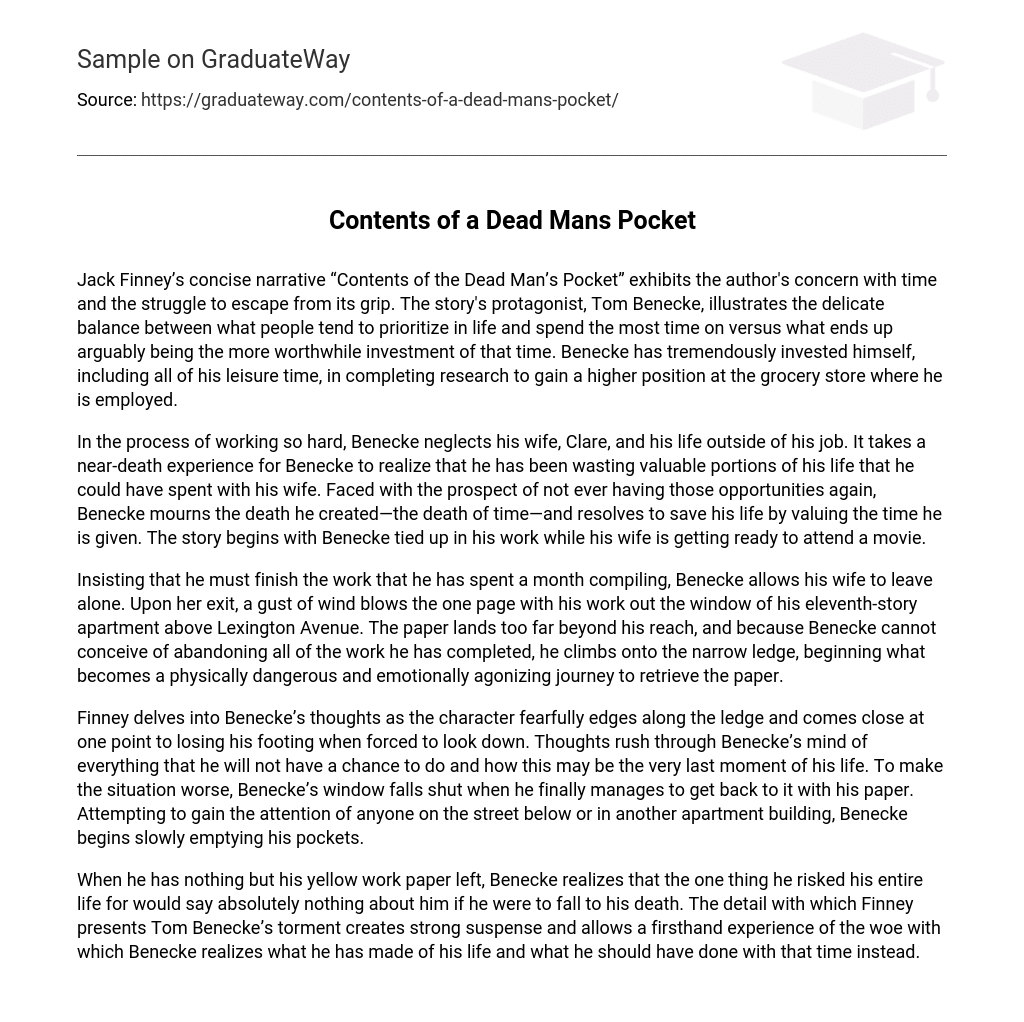Jack Finney’s concise narrative “Contents of the Dead Man’s Pocket” exhibits the author’s concern with time and the struggle to escape from its grip. The story’s protagonist, Tom Benecke, illustrates the delicate balance between what people tend to prioritize in life and spend the most time on versus what ends up arguably being the more worthwhile investment of that time. Benecke has tremendously invested himself, including all of his leisure time, in completing research to gain a higher position at the grocery store where he is employed.
In the process of working so hard, Benecke neglects his wife, Clare, and his life outside of his job. It takes a near-death experience for Benecke to realize that he has been wasting valuable portions of his life that he could have spent with his wife. Faced with the prospect of not ever having those opportunities again, Benecke mourns the death he created—the death of time—and resolves to save his life by valuing the time he is given. The story begins with Benecke tied up in his work while his wife is getting ready to attend a movie.
Insisting that he must finish the work that he has spent a month compiling, Benecke allows his wife to leave alone. Upon her exit, a gust of wind blows the one page with his work out the window of his eleventh-story apartment above Lexington Avenue. The paper lands too far beyond his reach, and because Benecke cannot conceive of abandoning all of the work he has completed, he climbs onto the narrow ledge, beginning what becomes a physically dangerous and emotionally agonizing journey to retrieve the paper.
Finney delves into Benecke’s thoughts as the character fearfully edges along the ledge and comes close at one point to losing his footing when forced to look down. Thoughts rush through Benecke’s mind of everything that he will not have a chance to do and how this may be the very last moment of his life. To make the situation worse, Benecke’s window falls shut when he finally manages to get back to it with his paper. Attempting to gain the attention of anyone on the street below or in another apartment building, Benecke begins slowly emptying his pockets.
When he has nothing but his yellow work paper left, Benecke realizes that the one thing he risked his entire life for would say absolutely nothing about him if he were to fall to his death. The detail with which Finney presents Tom Benecke’s torment creates strong suspense and allows a firsthand experience of the woe with which Benecke realizes what he has made of his life and what he should have done with that time instead.





